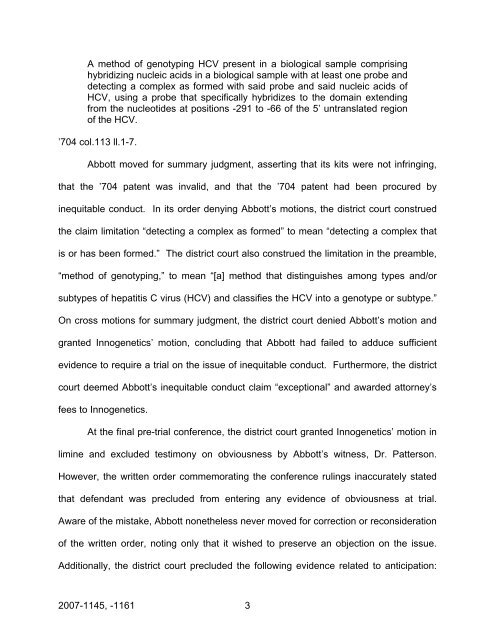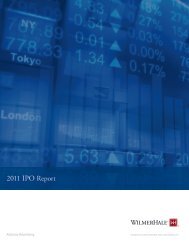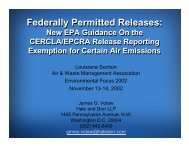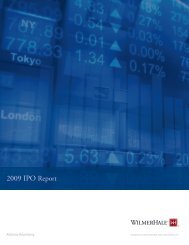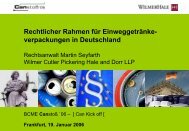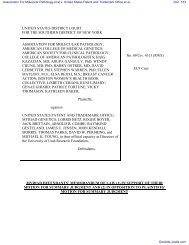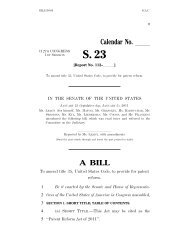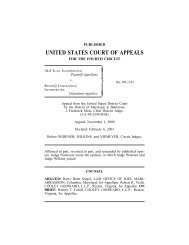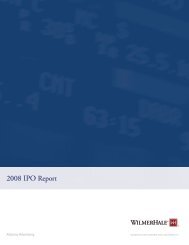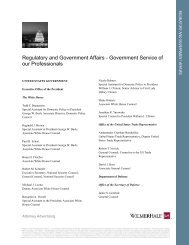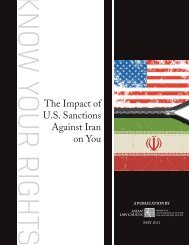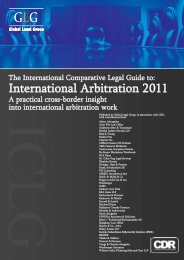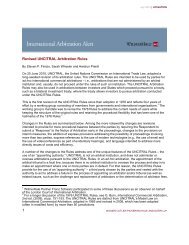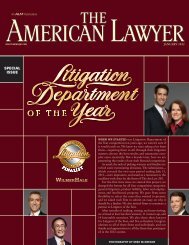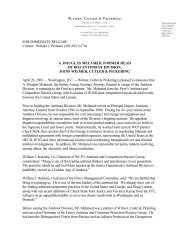Innogenetics, N.V. v. Abbott Laboratories - WilmerHale
Innogenetics, N.V. v. Abbott Laboratories - WilmerHale
Innogenetics, N.V. v. Abbott Laboratories - WilmerHale
You also want an ePaper? Increase the reach of your titles
YUMPU automatically turns print PDFs into web optimized ePapers that Google loves.
A method of genotyping HCV present in a biological sample comprisinghybridizing nucleic acids in a biological sample with at least one probe anddetecting a complex as formed with said probe and said nucleic acids ofHCV, using a probe that specifically hybridizes to the domain extendingfrom the nucleotides at positions -291 to -66 of the 5’ untranslated regionof the HCV.’704 col.113 ll.1-7.<strong>Abbott</strong> moved for summary judgment, asserting that its kits were not infringing,that the ’704 patent was invalid, and that the ’704 patent had been procured byinequitable conduct. In its order denying <strong>Abbott</strong>’s motions, the district court construedthe claim limitation “detecting a complex as formed” to mean “detecting a complex thatis or has been formed.” The district court also construed the limitation in the preamble,“method of genotyping,” to mean “[a] method that distinguishes among types and/orsubtypes of hepatitis C virus (HCV) and classifies the HCV into a genotype or subtype.”On cross motions for summary judgment, the district court denied <strong>Abbott</strong>’s motion andgranted <strong>Innogenetics</strong>’ motion, concluding that <strong>Abbott</strong> had failed to adduce sufficientevidence to require a trial on the issue of inequitable conduct. Furthermore, the districtcourt deemed <strong>Abbott</strong>’s inequitable conduct claim “exceptional” and awarded attorney’sfees to <strong>Innogenetics</strong>.At the final pre-trial conference, the district court granted <strong>Innogenetics</strong>’ motion inlimine and excluded testimony on obviousness by <strong>Abbott</strong>’s witness, Dr. Patterson.However, the written order commemorating the conference rulings inaccurately statedthat defendant was precluded from entering any evidence of obviousness at trial.Aware of the mistake, <strong>Abbott</strong> nonetheless never moved for correction or reconsiderationof the written order, noting only that it wished to preserve an objection on the issue.Additionally, the district court precluded the following evidence related to anticipation:2007-1145, -1161 3


